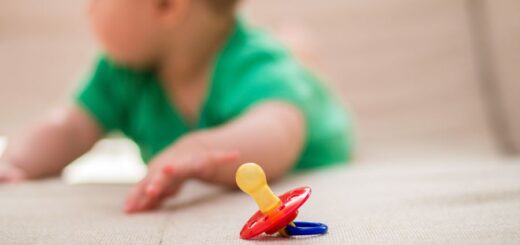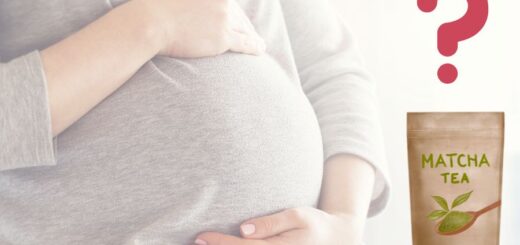Matcha tea while pregnant: necessary rules
Matcha has grown in popularity over the past few years. The frothy texture of matcha tea is achieved by adding milk and sugar to regular green tea. Quite often, people wonder if it is possible to drink matcha tea during pregnancy.
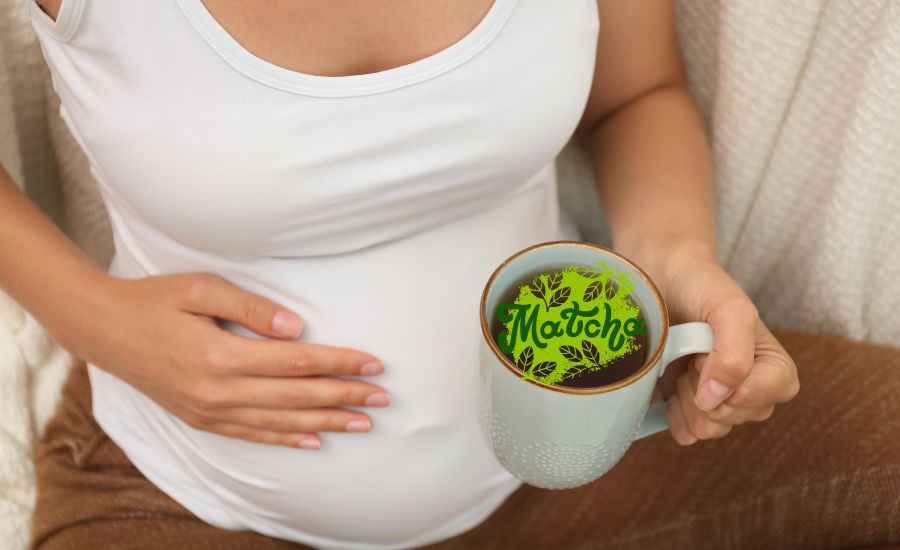
Features
Before proceeding to study the question of whether it is possible to drink matcha during pregnancy, you should familiarize yourself with the features of matcha green tea. Matcha green tea is a powder that is made from green tea leaves. It is in great demand in Asian countries.
You need to understand that plants are grown for matcha tea using a different technology. The preparation of matcha green tea is different from classic drinks. Before collecting green tea leaves, they are placed in the shade for a month. This contributes to the fact that green tea loses some chlorophyll and amino acids.
To make matcha powder, loose-leaf tea is ground in stone mills.
First, you need to remove the veins and stems from the leaves. This produces a uniform matcha green tea powder. It is characterized by a rich green tint.
The caffeine content in matcha green tea
If a pregnant woman decides to enjoy matcha while pregnant, the caffeine content of matcha tea should be investigated first. On average, the caffeine content is at the level 40 mg of caffeine. This figure is based on 1 g of matcha green tea.
Many are wondering how much matcha green tea you can drink during the day. This caffeine intake suggests that you can drink tea up to 4 servings during the day. As you know, the daily caffeine intake should be at the level of 200 mg and no more. Especially when it comes to pregnant women. Compared to other green teas, matcha has a lower caffeine intake.
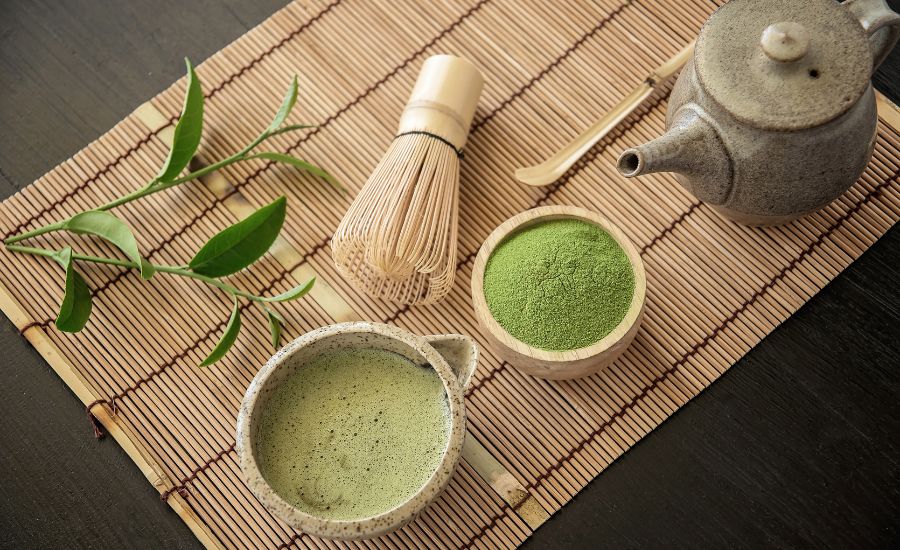
Can you drink matcha green tea during pregnancy?
Many expecting mothers wonder if it is possible to drink matcha while pregnant. Pregnant women are allowed to do it. However, it is better to do it in moderation. You need to ensure that a pregnant woman does not consume more than 200 mg of caffeine during the day.
Caffeine intake in the correct dosages is extremely important as it has an impact on the child. Even if a pregnant stick to insignificant caffeine consumption during the day, it will affect the child. On average, 1 g of this tea contains 20-45 mg of caffeine. That is, one teaspoon of matcha tea contains about 70 mg of caffeine.
Drinking matcha tea during pregnancy is recommended after consulting a doctor. Especially if pregnant women consume tea for the first time. It is better to clarify in advance what effect tea has on a pregnant woman, as well as a child.
Pros of matcha green tea consumption during pregnancy
Matcha green tea contains enough phytochemicals to provide health benefits. Among the most useful components, poutine, vitamin C, and catechins should be noted.
If a pregnant woman decides to drink tea, then she can notice the following health benefits from this drink:
- improvement of the work of the heart and blood vessels;
- strengthening of vascular walls;
- normalization of blood pressure;
- strengthening the immune system;
- normalization of blood sugar levels;
- fight against various inflammations.
As you can see, matcha during pregnancy has a positive effect on the health of pregnant women as well as the baby. However, it is better not to self-medicate, and introduce the drink into the diet only after consulting a doctor.

How safe is matcha tea?
If pregnant women drink tea moderately, then there is no harm to the fetus. Matcha is safe if caffeine consumption is in small doses.
Therefore, matcha tea consumption should be meaningful and correct.
Matcha safe can be harmful if pregnant women indulge in excessive tea or caffeine consumption. It is important to remember that matcha safe must be consumed at a certain time. The timing of tea intake has an impact on nutrient absorption.
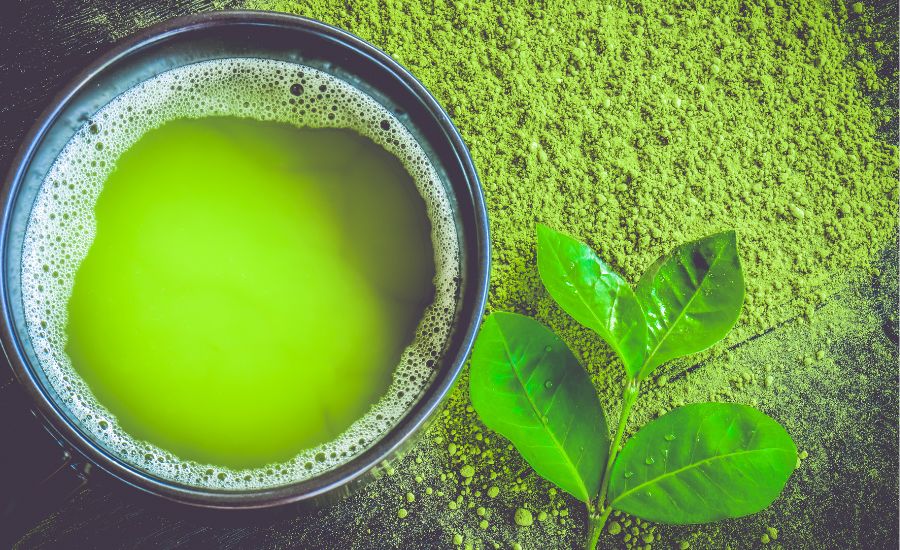
Dangers of matcha tea during pregnancy
Although you can drink tea during pregnancy, it is extremely significant to monitor the amount of product consumed. Pregnant women should first study the question of how matcha tea affects the absorption of nutrients.
This affects the well-being of a pregnant.
Too much caffeine
Expecting mothers need to be mindful of their tea consumption, and matcha is no exception. As you know, drinking matcha during pregnancy is dangerous because the product is high in caffeine. Caffeine can penetrate the baby’s body through the maternal placenta.
Caffeine is found in many drinks and foods. You should limit caffeine intake to 200 mg per day. However, you need to understand that daily matcha consumption can adversely affect pregnancy. After all, caffeine has never brought only benefits.
Problems with folic acid absorption
As you know, matcha during pregnancy should be consumed correctly, and in limited quantities. If you drink tea on an ongoing basis, it blocks the absorption of folic acid. As you know, folic acid is an essential substance in the body of a pregnant.
It prevents defects in the child. At the same time, folic acid contributes to the proper development of the child. Additionally, it facilitates childbirth, and they pass without complications. Green tea, namely leaf tea, contains catechins. This is a fairly strong antioxidant that will block the absorption of folic acid.
Even if an expecting mother drinks matcha or regular green tea in the amount of 4 cups a day, there will always be a lack of folic acid in her body. Because of this, there is a high chance that the child will be born with birth defects.
If you are not ready to give up daily consumption of matcha, it is critical to take additional special vitamins and nutritional supplements containing folic acid. This will prevent problems in the future. It is essential to drink tea and folic acid at different times so that the beneficial components are absorbed into the body.
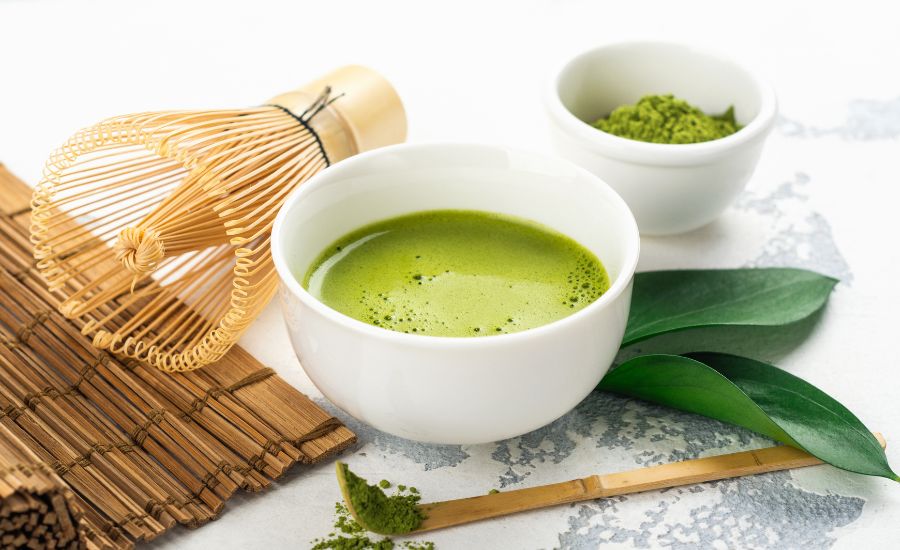
Iron absorption
According to statistics, pregnant women consume several cups of matcha a day. It must be remembered that this will prevent iron absorption. Because of this, pregnant girls can develop anemia due to a lack of iron. It must be remembered that bad iron absorption is extremely dangerous, both for the expecting mothers and for the child.
If you tend to have anemia due to iron deficiency, it is better to take additional supplements. Matcha should also be consumed separately from supplements so that iron absorption into the body.
Interesting facts about matcha tea
Matcha green tea has several interesting facts.
Leaf consumption
If you decide to drink tea, you should understand that you will consume full-fledged green tea leaves. They are pulverized into powder form. Therefore, you will not notice any discomfort while drinking the drink.
Before adding water, you can sift the powder. Milk may be added. The main thing is to adhere to clear cooking instructions so as not to harm your body.
Energizing
As you know, any drinks containing caffeine saturate the body with energy. Therefore, the use of green tea during pregnancy helps the girl to be cheerful and energetic. Matcha tea contains not only caffeine but also L-theanine. Therefore, it is an excellent stimulating beverage.
It helps improve brain function. Many say that matcha tea helps to relax. However, you still be energetic, not lethargic.
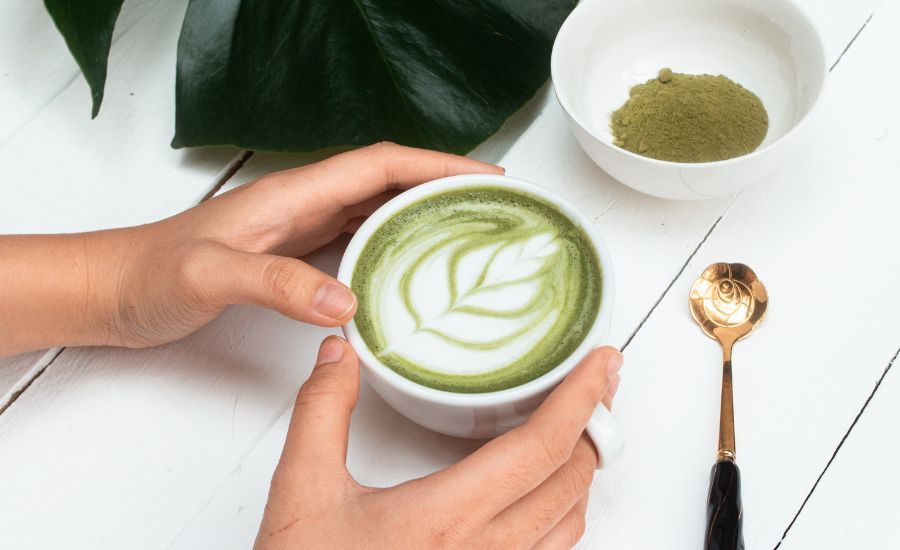
The versatility of matcha tea
Matcha powder can be used for more than just making tea. It is appropriate to add it to smoothies in the morning. This slightly improves the taste of the dish. Matcha is often added to ice cream, which is made from fruit.
The matcha ice cream recipe appeals not only to adults but also to children.
Many people use matcha when making salads. Matcha can be used to make homemade face masks.
How to make matcha: recipe
Today, in many cafes you can find matcha tea in the assortment. However, you can also make your own. First, you need to boil water. One teaspoon of powder should be thrown into the cup, and a little water should be added to make a porridge-like consistency.
Then start increasing the amount of water to 170-200 ml. In this case, you should focus on your taste preferences. After, if desired, you can add sugar or spices. Many people like to use milk instead of water.
Regardless of the type of liquid, you get a delicious drink. It blocks various inflammations in the body and will help strengthen the immune system. It is believed that regular consumption of matcha tea helps to cope with high blood sugar levels.
Matcha latte recipe
Many people like matcha, which looks like a latte. First, you need to pour the powder into a cup. After pouring in some water or milk, the temperature of which is 176 degrees Fahrenheit. After that, you need to beat the mass with a mixer to form a thick paste. There should be bubbles on the surface.
It would be best if you worked with the mixer actively, moving it in different directions. Make sure there are no lumps. Additionally, you can add syrups, sugar, or honey.
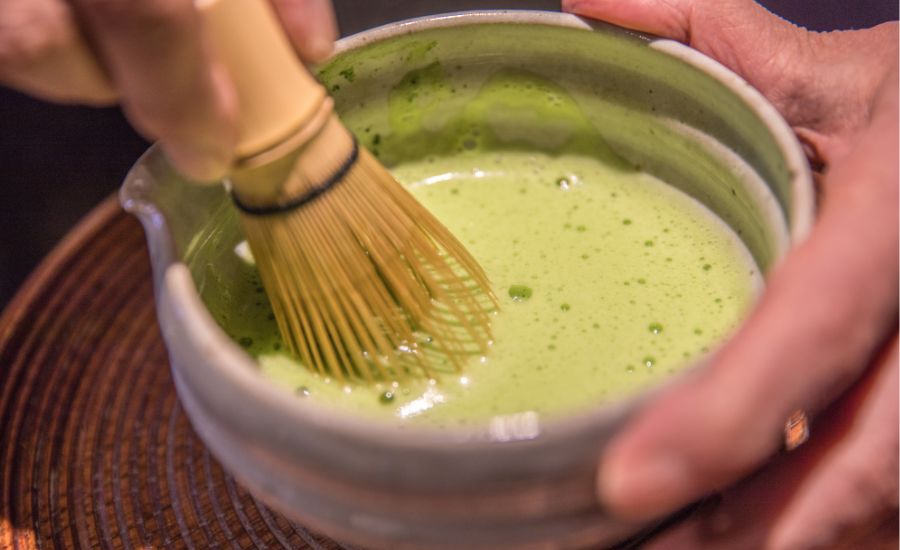
Possibility of drinking matcha tea while breastfeeding
Matcha is safe, not only for pregnant women.
It can be used by girls who are in the lactation period.
The drink helps you stay awake while being a safer substitute for coffee. Breastfeeding women are not recommended to consume more than 300 mg of caffeine per day.
Rules for drinking matcha tea
You must drink matcha tea at the right time. Stop drinking only in the morning. It is not recommended to drink the drink in the evenings, because due to the content of caffeine in it, sleep problems may occur.
Do not drink caffeinated drinks on an empty stomach. After all, it irritates the walls of the intestines and stomach. Therefore, problems may arise in the form of exacerbation of gastritis or stomach ulcers.
It is not recommended to consume matcha tea if you have heart or liver problems. Caffeine can only make things worse.
The right choice of matcha tea
As you know, the benefit of the drink is only if the powder is of high quality. It is extremely important to choose products that do not contain impurities or flavors. You should not select matcha teas that contain other herbs.
When you buy matcha, look at the shade of the powder. It should be saturated green. The presence of yellow or brown blotches indicates that the product is of poor quality. Remember to look at the expiration date to keep the product fresh.
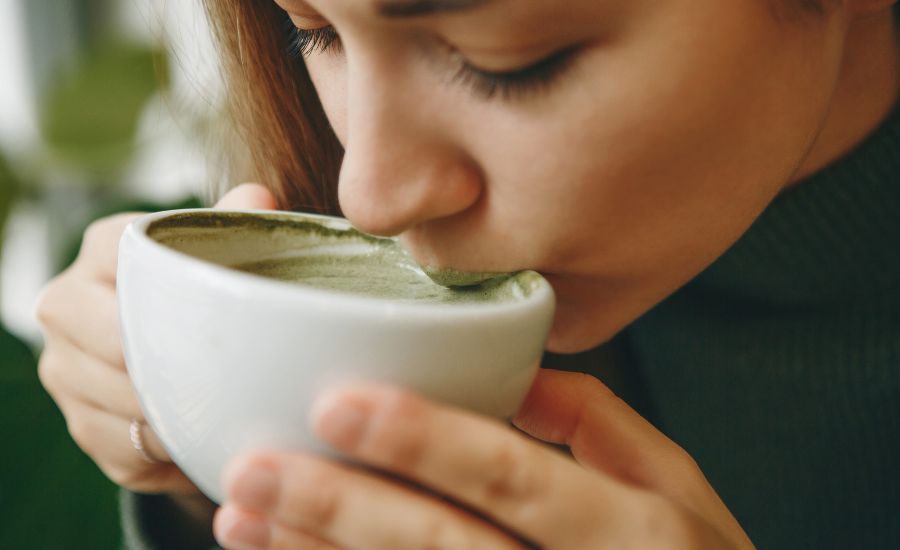
Results
As you can see, matcha tea during pregnancy can even be beneficial. The main thing is to use it in doses, and not exceed the recommended norms. It is also better to consult your doctor beforehand.
Read More: Is Matcha Tea Safe During Pregnancy?
Our previous article 15 Signs Of Pregnancy To Know If You Are Pregnant in the title Am I pregnant ve pregnancy exercises information is provided..









